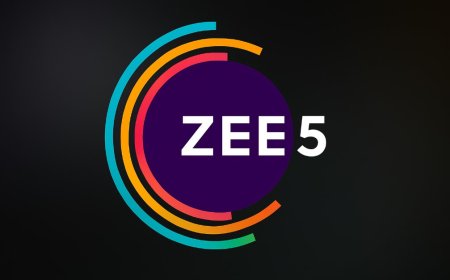7 in 10 Indians Admit to Misusing AI at Work: What This Means for the Future of Digital Ethics
A new survey reveals that 7 in 10 Indian professionals admit to misusing AI tools in the workplace. Explore what this trend says about digital ethics, productivity, and the evolving role of artificial intelligence in corporate India.

In a digital-first world, artificial intelligence (AI) has rapidly gone from being a buzzword to a daily tool across workplaces in India. But as adoption soars, so do concerns about ethical usage. A recent survey reveals a startling insight: seven out of ten Indian professionals admit to misusing AI tools at work.
This isn’t just a headline—it’s a mirror reflecting the challenges, confusions, and growing pains of an evolving professional culture caught between innovation and responsibility.
The Rise of AI in Indian Workplaces
AI tools, especially those powered by generative models like ChatGPT, have become commonplace in Indian offices. From drafting emails and reports to preparing presentations, coding, content creation, and even customer service chatbots—AI is now a digital co-worker.
Its speed and efficiency are game-changers. But with great power comes… well, some questionable usage.
The accessibility of these tools means that professionals, regardless of role or seniority, can integrate AI into daily work. But this freedom has also led to blurred boundaries between ethical usage and outright misuse.
Defining 'Misuse': Where Do We Draw the Line?
“Misuse” isn’t always malicious. For many, it means using AI in ways that weren’t explicitly permitted, or relying on it too heavily—sometimes without disclosure. Common examples include:
-
Submitting AI-generated reports without editing or attribution
-
Copy-pasting AI-written answers in assessments or evaluations
-
Using AI tools to bypass thinking or brainstorming tasks
-
Presenting AI-generated content as original work without review
This kind of misuse highlights a lack of clear AI governance policies in many organizations. In the absence of defined guidelines, employees often operate in grey areas, unsure of what’s acceptable.
Why Are So Many Professionals Misusing AI?
There are several reasons why the misuse of AI is becoming widespread in India’s corporate ecosystem:
1. Lack of AI Literacy
While employees are aware of how to use tools like ChatGPT, they may not be trained on ethical best practices. There’s a gap in digital ethics education, leaving many to experiment without understanding the consequences.
2. Time Pressure and Deadlines
The corporate world moves fast. When deadlines loom and pressure builds, AI becomes an easy shortcut. What might begin as “just this once” often becomes a habit.
3. Inadequate Company Policies
Most Indian companies are still building their AI usage frameworks. Without formal AI usage policies, the burden of judgment falls entirely on the user.
4. Perceived Harmlessness
Many believe that using AI for “small tasks” or “routine work” isn’t real misuse. This perception downplays the larger implications on creativity, learning, and accountability.
Impact on Workplace Dynamics and Integrity
The implications of AI misuse aren’t just technical—they affect trust, performance, and fairness in the workplace.
Loss of Authenticity
Relying on AI for creative or strategic thinking can result in work that lacks originality or context-specific relevance. Over time, this affects the quality of outcomes.
Undermining Skill Development
If employees bypass thinking or learning by outsourcing to AI, long-term growth and learning take a hit. It may lead to a workforce that appears productive but lacks depth in understanding.
Trust Issues
If managers or peers discover AI misuse, it can shake trust. It raises questions about ownership, credit, and competence—especially in collaborative environments.
AI Tools Are Not the Enemy—Misuse Is
It’s essential to differentiate between AI usage and AI abuse. When used responsibly, AI can elevate productivity, reduce burnout, and spark innovation.
Some companies are already leveraging AI as a training assistant, a writing support tool, or a coding aid. In these cases, employees are encouraged to use AI—but transparently, and with oversight.
Responsible AI use isn’t about banning tools; it’s about using them thoughtfully and giving credit where it’s due.
The Role of Employers: Policies, Training, and Transparency
The responsibility to guide proper AI usage doesn’t lie with employees alone. Employers must act fast to establish ground rules before misuse becomes the norm.
Create Clear AI Usage Policies
Companies need well-defined rules that outline what is allowed, what isn’t, and where AI fits into their workflow expectations.
Provide Training
Many employees misuse AI simply because they don’t know better. Short training sessions on digital ethics, data privacy, and responsible AI use can make a significant difference.
Foster Open Dialogue
Encourage a culture where employees can ask questions about AI use without fear. A non-punitive approach helps foster learning and honesty.
Audit and Feedback Systems
Regular content audits and feedback loops can help catch over-dependence on AI and course-correct where needed.
Are We Moving Toward an AI Code of Conduct?
India’s corporate sector may soon need a universal AI code of conduct, much like codes for cybersecurity or workplace harassment. As AI evolves, so must the ethical frameworks governing its use.
Some global firms have already begun implementing AI disclosure norms—where employees are expected to reveal when and how they’ve used AI in producing work. This could be a valuable practice for Indian companies to adopt.
Looking Ahead: A Balanced Approach to AI
The truth is, AI isn’t going anywhere. In fact, it’s only going to become more integrated into our lives. But like any tool, it must be used with awareness, responsibility, and balance.
For Indian professionals, the future lies not in rejecting AI but in mastering its ethical use. It’s time to treat AI not as a crutch, but as a collaborator—and to build a work culture where integrity and innovation coexist.
Conclusion: Time to Evolve Workplace Mindsets
The revelation that 70% of Indian professionals misuse AI at work should serve as a wake-up call. It’s not a condemnation—it’s a cue for education, policy, and introspection.
As companies adapt to the digital age, the need for ethical leadership in AI has never been greater. We’re on the cusp of a new corporate culture—one where digital tools must align with human values.
What's Your Reaction?
 Like
0
Like
0
 Dislike
0
Dislike
0
 Love
0
Love
0
 Funny
0
Funny
0
 Angry
0
Angry
0
 Sad
0
Sad
0
 Wow
0
Wow
0












































